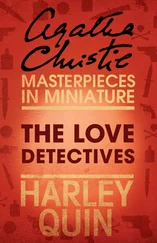A tsunami wave inside my body rolled. The telephone became a schizophrenic instrument, the “therefore” placed between us, two non-sequiturs. I had to take control.
“No!,” I said, then curbed the violence of it. “I’m only here ’til Tuesday and there’re other things I need to do. If we’re going to get together it’d be better if we could make a plan right now.”
You suggested that we meet for lunch the following afternoon.
27. David Rattray was a 26-year-old American junkie when he started translating Antonin Artaud. He’d read Artaud in French at Dartmouth College, but in 1957, living on his own in Paris, he decided to become him. At the old Bibliothèque Nationale in Paris, the cataloging system held a list of every book checked out by every reader. Artaud was fairly freshly dead. And isn’t scholarship just a stalking of the dead by people who’re too stoned or scared to chase live bait? That year David Rattray read every single book checked out by Antonin Artaud.
This afternoon (August 12) I went over to the Occidental College Library. It was about 102 degrees. I wanted to look at Katherine Mansfield’s famous story At The Bay , set in Wellington, New Zealand. I was hoping that its qualities—time frozen soft in green and blue—would help me write about the lunch we had in April, that Saturday afternoon. The third floor of the library was cool and empty and all of Katherine’s books were there. Among them was a gorgeous Knopf edition of Mansfield’s Bliss and Other Stories , the sixth printing, published in the year she died, 1923. Its dark green cover, thick lead type sunk deep on creamy pages, cheerful green and orange endpapers, threw me back into a time when books were friends. I sat down between the stacks and started thumbing through the pages. They were as intimate, delicious and inviting as Venusian skin.
I checked out Bliss and another book of Katherine’s Collected Stories around 3 p.m. I had to try and eat, so I drove to 50th and Figueroa, a green and orange stucco restaurant, Chico’s Mexican Taquitos. Waiting for the soup I opened Bliss at random to page 71, the opening of a story called “Je Ne Parle Pas Français.” Chico’s only other customers were two guys named Vito and Jose, as thin as me and both fresh out of “rehab” (four days of tranquilized withdrawal) at a nearby public hospital. A woman sitting, reading all alone will always be a receptacle for passersby to rant on. Vito sat down next to me. “Heroin’s sooo good,” he said. “But, you see, it’s very bad.” Now that he was clean, he thought he’d try his luck in Laughlin. He’d heard there were plenty of good jobs in the casinos. He’d save some money, try and join his wife and baby girl. “I don’t know why I have such a fancy for this little cafe. It’s dirty, sad.” Page 71 of Bliss found Katherine sitting by herself one afternoon at the close of World War I in a French cafe.
“Don’t talk so much,” Jose told Vito. I was sitting like a school-teacher with all my library books, offering advice on kicking. When Vito left he said “God bless.” And at that moment I was overwhelmed with love for Katherine, whose letters from this time (Paris, Spring, 1918) had been suppressed after her death by her husband because they were “too painful.”
“I don’t believe in the human soul, I believe that people are like portmanteaux,” she writes at the opening of this story, as if anybody cared. “ Bliss was so brilliant…,” Katherine’s friend Virginia Woolf wrote to Janet Case, “…and so hard, and so shallow, and so sentimental that I had to rush to the bookcase for something to drink.”
Katherine, Queen of the Biscuit Box School of Writing, the brave colonial girl, determined to live in London, even though the checks sent by her bank-director father from Wellington, New Zealand didn’t take her very far. Wellington, the capital of New Zealand, was a city of unpaved roads and horses. Men wrote heroic verse about the land. But there she was in Paris: 28 years old, alone, tubercular and hemoraging for the first time; willing to take a crack at it, at being “right” and making the most absolute of statements.
Katherine, who capitalized words like Life and wrote themes on love and rhubarb, indulged by D.H. Lawrence and lots of other men because she was sincere and pretty. Katherine the utopian space cadet, whose entire literary project was to capture heightened states of adolescent feeling (“bliss”). Katherine, who tried so hard in London to be best-friends with Virginia Woolf, who hated her, because Katherine was the kind of naif-imbecile that the literary men adored and championed at her expense.
“My God, I love to think of you, Virginia,” Katherine wrote in 1917, “as my friend…we have got the same job and it is really very curious & thrilling that we should both be after so nearly the same thing…” even though she later wrote John Murray that she found Virginia’s writing “intellectually snobbish, long and tiresome.” In 1911, her first year in London, Katherine posed uncomfortably for a portrait. Thick eyebrows, pointed nose, neck craned forward…in this photo she was not a pretty girl. Her life there was one big flourish of bravado, her impetuosity, “pores and vapours” which (according to Virginia Woolf) “sicken or bewilder most of our friends.”
Yet seven years after Katherine’s death, Virginia admitted she still dreamed of Katherine, who had a quality she “adored and needed,” so in a sense she loved her too. This afternoon the thought of Katherine trying to be “right” in London made me get all clutchy, and Dick, that isn’t all:
No matter where you go, someone else has been before.
Because like me, Katherine Mansfield fell in love with Dick.
On page 85 of “Je Ne Parle Pas Français,” she writes:
“It was impossible not to notice Dick. What a catch! He was the only Englishman present (italics mine), reserved and serious, making a special study of literature and instead of circulating gracefully round the room he stayed in one place leaning against the wall, that dreamy half smile on his lips and replying in his low soft voice to anybody who spoke to him.”
But unlike you, this Dick had no “previous engagements.” Straight off, he invited Katherine out to dinner. And they spent the night at his hotel,
“Talking—but not only of literature. I discovered to my relief that it wasn’t necessary to keep to the tendency of the modern novel… Now and again, as if by accident, I threw in a card that seemed to have nothing to do with the game, just to see how he’d take it. But each time he gathered it into his hands with his dreamy look (my emphasis) and smile unchanged. Perhaps he murmured: ‘That’s curious.’ But not as if it were curious at all.”
Dick was Katherine’s perfect schizophrenic listener. As Géza Róheim wrote, Dick was dreamily empathic because “a lack of ego boundaries makes it impossible for him to set limits to the process of identification.” And Katherine flipped:
“Dick’s calm acceptance went to my head at last. It fascinated me. It led me on and on ’til I threw every card I possessed at him and sat back and watched him arrange them in his hand.”
By that time both of them were very drunk. Dick didn’t judge. He just said, “Very interesting.” And she was overwhelmed,
“…quite breathless at the thought of what I’d done. I had shown somebody both sides of my life. Told him everything as sincerely and truthfully as I could. Taken immense pains to explain things about my submerged life that really were disgusting and never could possibly see the light of day.”
Have we talked enough about the schizophrenic phenomena of coincidence?
Читать дальше
Конец ознакомительного отрывка
Купить книгу












